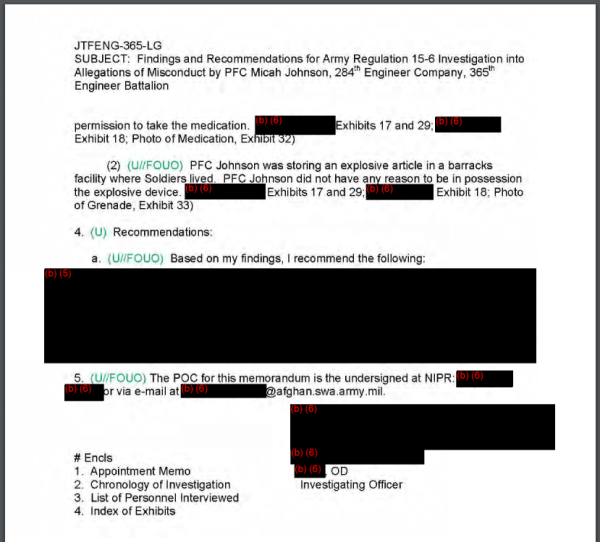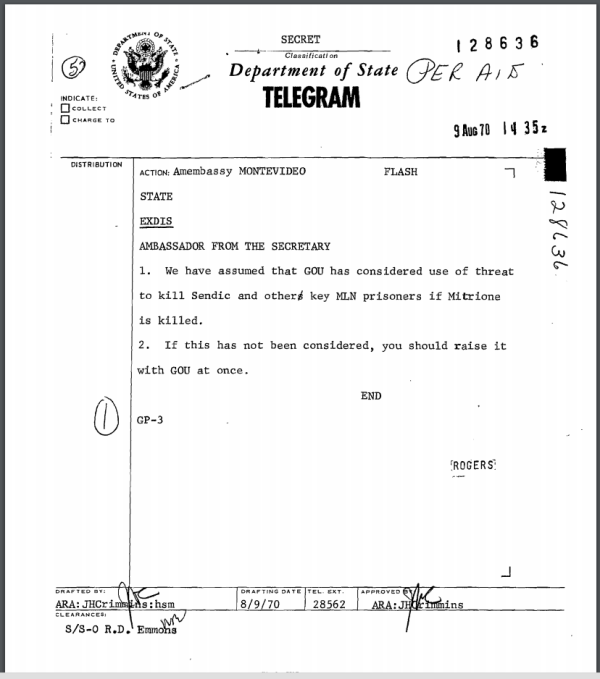DOJ Arguments “Inconsistent with the Purpose of the FOIA” and More: FRINFORMSUM 8/4/2016
A recent FOIA ruling from the D.C. Circuit found that agencies can’t withhold non-responsive information from a record if there is no basis for exempting the information. Specifically, the panel found “no statutory basis for redacting ostensibly non-responsive information from a record deemed responsive.” The ruling, which was made in a case seeking information about immigration judge complaints, further noted that “Under the statutory framework, once the government concludes that a particular record is responsive to a disclosure request, the sole basis on which it may withhold particular information within that record is if the information falls within one of the statutory exemptions from FOIA’s disclosure mandate. But the government in this case… redacted discrete information within the records on the basis of non-responsiveness even if no statutory exemption shielded the information from disclosure. That approach cannot be squared with the statutory scheme.”
In a separate case, the D.C. Circuit found the Justice Department’s arguments – put forth by Civil Division attorney Daniel Tenny – that documents maintained by agency heads on a private server are not under agency control and therefore not subject to FOIA to be “inconsistent with the purpose of FOIA.” The Court went on to say, “If a department head can deprive the citizens of their right to know what his department is up to by the simple expedient of maintaining his departmental emails on an account in another domain, that purpose is hardly served.” This case in particular serves as the most recent example of the Justice Department defending bad agency positions at the expense of the FOIA and FOIA requesters.
A new Freedom of Information Act release from the Army sheds some light on Dallas police shooter Micah Xavier Johnson, who was accused of sexual harassment while serving in Afghanistan and honorably discharged after “panties stolen from a female soldier” were found in his barracks. The report found that Johnson’s actions did not “constitute any of the categories or types of sexual harassment under AR 600-20.” The final recommendations made in the Army report are unfortunately withheld under the B)(5) “withhold it because you want to” exemption, despite the fact there is considerable public interest in the conclusions of the Army investigation into Johnson.
A FOIA appeal for records concerning Donald Trump’s re-development of the taxpayer-owned Old Post Office building in downtown D.C. into a luxury hotel shows how Trump “leveraged a mere $2.4 million equity investment to gain control of the $200 million project.” The documents also show how Trump funneled money to his children “through separate companies bearing each of the children’s names, and the document indicates that those companies did not invest money. Nevertheless, their stakes could earn the children a big chunk of any profits generated from the taxpayer-owned site.” As BuzzFeed notes, despite the fact the building is owned by the public, many of the key documents in the deal were heavily redacted, forcing BuzzFeed to file an appeal. The startling before-and-after images of appealed documents is a good reminder of the why you should always appeal a FOIA denial.
Steven Aftergood recently broke down some of the most important findings in the most recent annual report from the Information Security Oversight Office (ISOO). The Good news: the number of new secrets – “original classification decisions” – are the second lowest ever, albeit up from last year; the number of individuals authorized to create new national security secrets is at an all-time low; and the number of “internal classification challenges” has reached an all-time high.
The Bad news: at more than $17 billion, the cost of the national secrecy system is up 8 percent from last year; “the number of [mandatory declassification review] requests that have gone unresolved for more than a year increased significantly to more than 14,000;” and the “declassify in ten years or less” instruction is down 15 percent.
Aftergood concludes that overall the trend in national security classification policy changes are positive, but that “The White House seems barely cognizant of those changes, and did not mention them at all in a recent description of the Obama Administration’s efforts ‘to drive openness and transparency in government.’”
Are you a reporter or journalist who uses the Freedom of Information Act? If so, take a few minutes to fill out the Reporters Committee for Freedom of the Press survey on a “Release to One, Release to All” FOIA policy. The anonymous survey is 11 questions and closes August 16. The National Security Archive’s position is that “the fundamental principle guiding open government is that a document release to one requester constitutes a release to the public as a whole.” The Archive has long been open to compromise, however, allowing for the possibility of a “release to one, release to all” method which provides for the online posting of FOIA-processed records with a short, built-in delay. The Department of State, probably the government’s best online reading room, posts its FOIA releases quarterly.
This week’s #tbt pick is chosen with the upcoming 46th anniversary of the kidnapping and murder of Dan Mitrione in Uruguay in mind. Mitrione was the Director of the U.S. AID Office of Public Safety in Uruguay, an organization that helped Uruguayan police “enhance” their counterinsurgency techniques and torture of prisoners. Mitrione was kidnapped by the leftist Movimiento Nacional de Liberación, held for ten days, and executed. Documents posted by the National Security Archive for the first time in 2010 show that the U.S., in an effort to spur Mitrione’s release, recommended a “threat to kill [detained insurgent] Sendic and other key [leftist insurgent] MLN prisoners if Mitrione is killed.”
Want to stay on top of the latest FOIA news? Click here to sign up for our weekly FRINFORMSUM email newsletter.
Happy FOIA-ing!





Comments are closed.